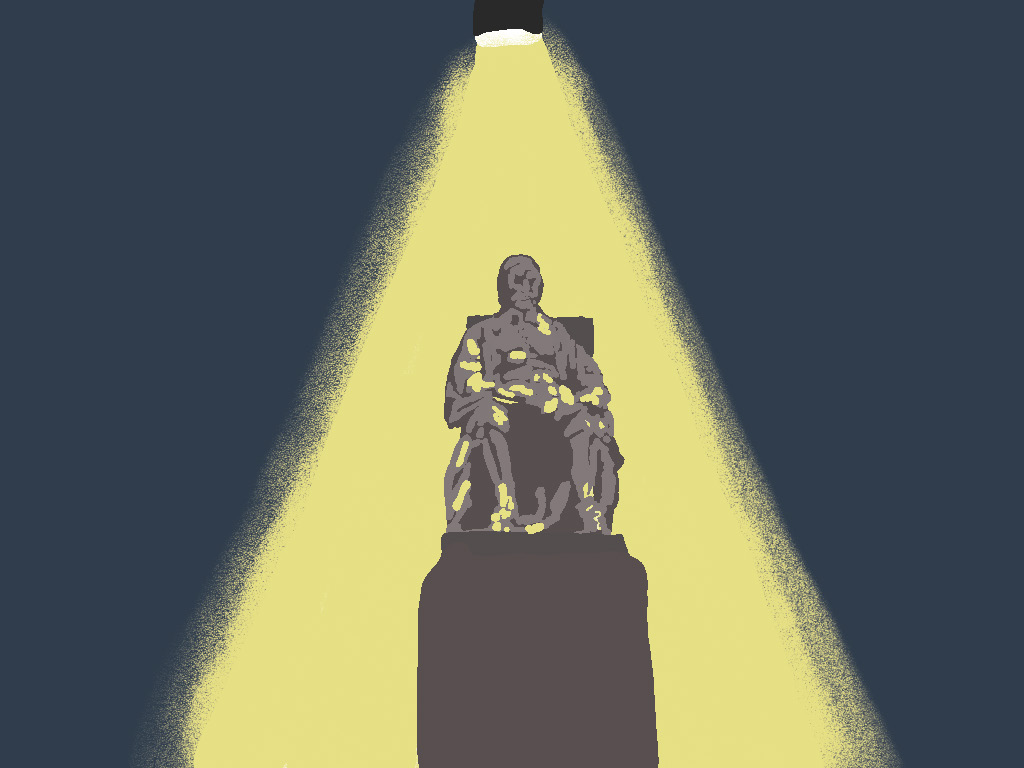
News
When Professors Speak Out, Some Students Stay Quiet. Can Harvard Keep Everyone Talking?

News
Allston Residents, Elected Officials Ask for More Benefits from Harvard’s 10-Year Plan

News
Nobel Laureate Claudia Goldin Warns of Federal Data Misuse at IOP Forum

News
Woman Rescued from Freezing Charles River, Transported to Hospital with Serious Injuries

News
Harvard Researchers Develop New Technology to Map Neural Connections
It’s Time for Harvard To Be the Center of Attention

Last month, the Trump administration took its first jab at Harvard and higher education. It surely won’t be the last.
On January 27th, the White House issued a memo freezing federal loans and grants. This freeze — though it was ultimately rescinded — would have shut down many federally funded research labs at Harvard and across the country and it’s unlikely to be President Donald Trump’s final swipe at higher education and research.
Harvard has a responsibility to defend itself against these assaults. To do so, it must become the center of attention.
Clearly, the University has a messy recent history with press publicity. The media coverage following former University President Claudine Gay’s congressional testimony on antisemitism fueled widespread public bashing of Harvard. After the immense fallout — culminating in Gay’s resignation — Harvard largely ducked out of the national conversation.
Now, staring down the barrel of four more years of Trump, this lack of engagement with the press cannot continue. Our vacation from the headlines may have been relaxing, but like Harvard’s nearly-six-week winter recess, it is now over. With a presidential administration headed by a man infamously skilled at garnering media attention, Harvard must defend its reputation in the court of public opinion: news spreads, primetime television, social media, and all.
I’m serious. University leadership should appear on media outlets and push social media posts to widely disseminate the good Harvard does — especially through federally funded research. Harvard STEM and social science departments should create public-facing Instagram, X, and Bluesky accounts to highlight their valuable work too.
As positive press for Harvard increases, both politicians and the American public will see that the University is far from solely self-serving — it genuinely makes the world a better place.
With the rise of social media, attention has become what Ezra Klein calls “the world’s most valuable resource.” People spend their days looking at screens, with their attention captured by fifteen flashing icons at once. Yet Harvard is neglecting the potential power of this new, precious asset. Indeed, the University’s lack of active media presence allows Harvard’s public image to be dictated by politics rather than its leaders.
Many politicians paint Harvard as an elitist institution that offers no real benefit to the majority of America. If those politicians successfully shut down all the federally funded research that Harvard so excels at, they certainly would go a long way to proving themselves right.
Obviously, research at Harvard and schools like it benefit the whole of America, through both economic and scientific means. Recent Harvard projects include designing an AI model that can diagnose cancer, exploring the impacts of diet on the immune system, and creating an alternative treatment for children with HIV.
Federal funding in research is a large part of the reason that scientific and technological innovations have fueled over half of the United States’ economic growth over the past 50 years. Harvard must publicize these benefits — in the words of Max Bialystock, “when you’ve got it, flaunt it.”
Gathering positive media attention subversively undermines the negative image of Harvard crafted by hostile politicians. University President Alan M. Garber ’76 and other top officials have to be the ones to place Harvard at the center of attention.
It might be easier for Harvard to avoid possible controversy through avoiding the media. But to protect the crucial research being done at Harvard and change Americans’ perspectives about our University, we must launch back into the spotlight, this time on our own terms.
Claire V. Miller ’28, a Crimson Editorial Editor, lives in Canaday Hall.
Want to keep up with breaking news? Subscribe to our email newsletter.
